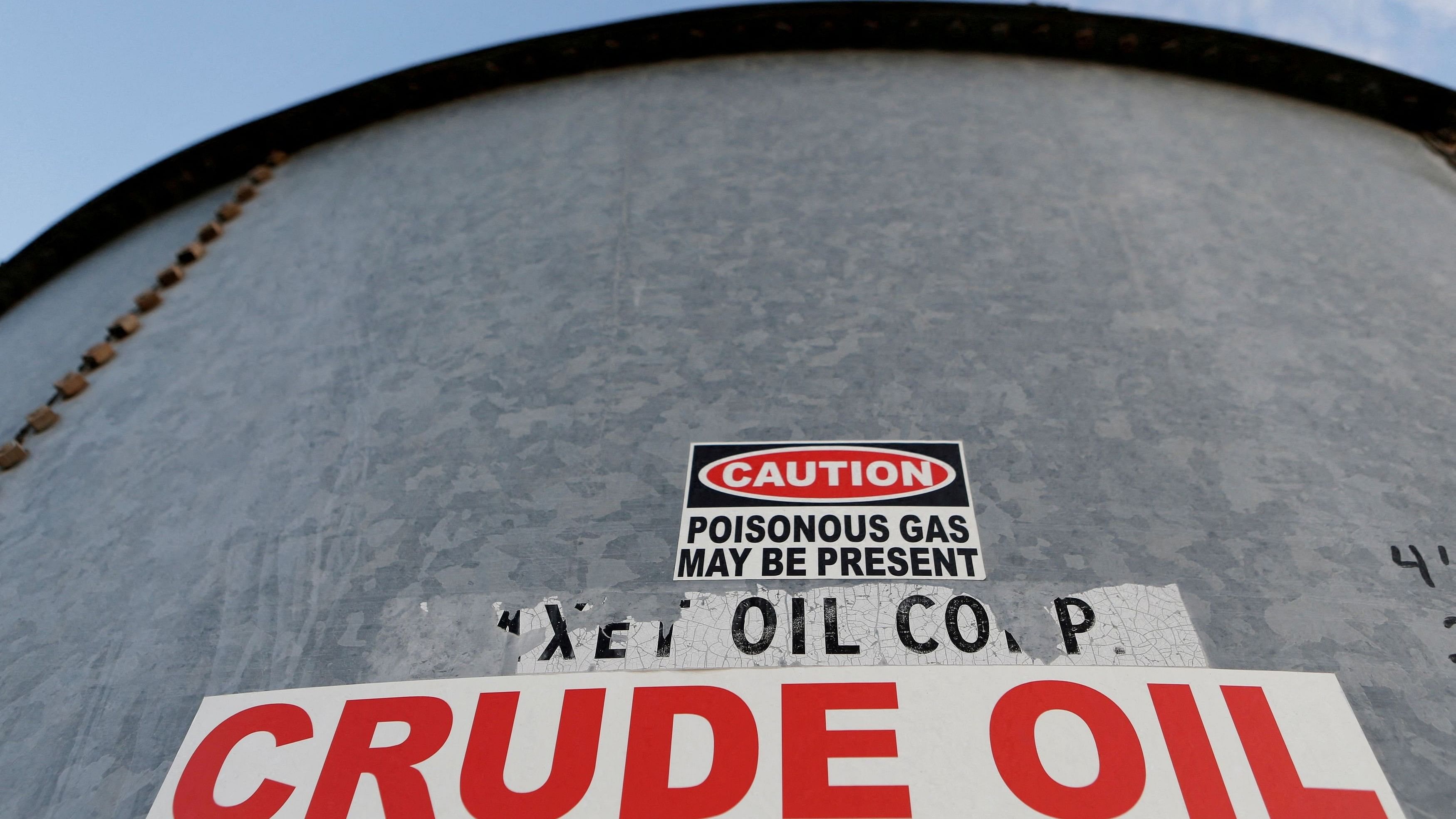
A sticker reads crude oil on the side of a storage tank in the Permian Basin in Mentone, Loving County, Texas, US.
Credit: Reuters File Photo
Oil prices rose on Tuesday as the Chinese economy grew faster than expected, while heightened tensions in the Middle East also kept markets on edge after Israel said it would respond to Iran's weekend missile and drone attack.
Brent futures for June delivery rose 48 cents, or 0.5 per cent, to $90.58 a barrel by 0437 GMT. US crude futures for May delivery rose 49 cents, or 0.6 per cent, to $85.90 a barrel.
The benchmarks rose on the back of solid economic growth in China, the world's biggest oil importer. Official gross domestic product grew 5.3 per cent in the first quarter, year-on-year, government data showed, comfortably beating analysts' expectations.
While the growth is seen as a welcome sign for policymakers trying to shore up confidence, a raft of other indicators including property investment, retail sales and industrial output showed demand remained weak in the face of a protracted property crisis.
Oil prices soared last week to the highest levels since October, but fell on Monday after Iran's attacks, which its government called a retaliation for an air strike on its Damascus consulate, caused only modest damage.
"Israel's response will determine whether the escalation ends or continues. The conflict could still be contained to Israel, Iran and its proxies, with possible involvement of the US," analysts at ANZ Research said in a note on Tuesday.
Israel's Prime Minister Benjamin Netanyahu on Monday summoned his war cabinet for the second time in less than 24 hours to weigh how to react to Iran's first-ever direct attack on Israel.
Iran produces more than 3 million barrels per day of crude oil as a major producer within the Organization of the Petroleum Exporting Countries (OPEC).